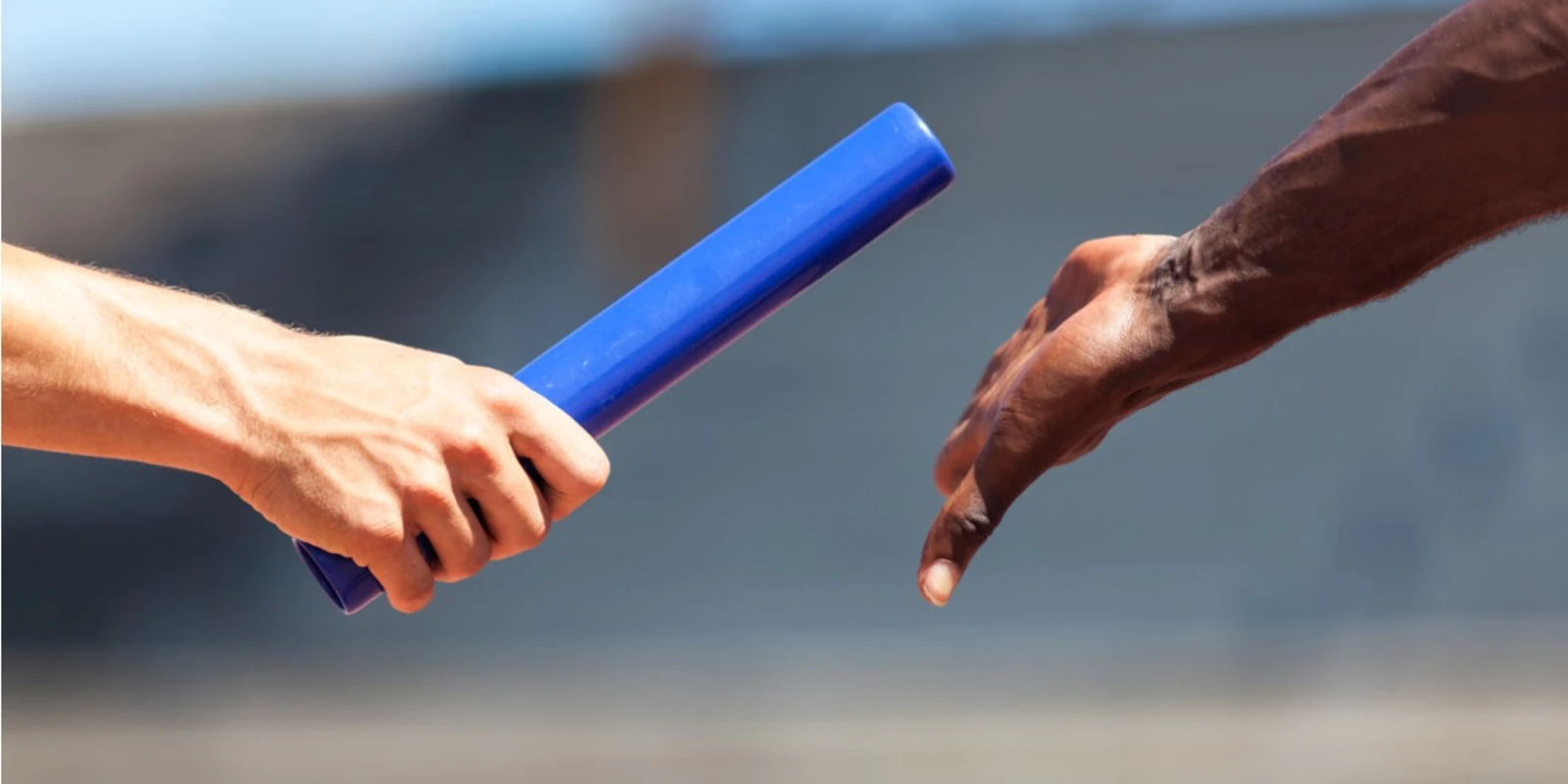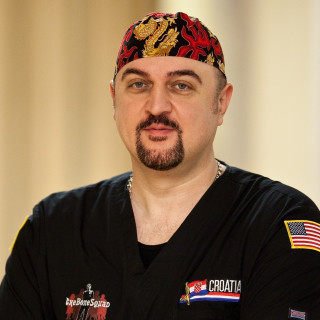
The party never ends when you’re having fun in the operating room. Conversely, sometimes the fun never starts because you are on-call 24/7 for weeks at a time, stressed and exhausted beyond your limits, and yet you still have to go on functioning in order to provide the best care possible for your patients.

Being a surgeon has been an amazing journey for me. It has allowed me to experience things that are so incredible that I couldn’t possibly put them into words.
On a daily basis, it truly is a roller coaster ride as I roll through every possible human emotion: anxiety, awe, empathetic pain, excitement, fear, happiness, horror, interest, joy, sadness, surprise, sympathy, and triumph. Whether I want those emotions to be there or not, I’m in the mix, for sure.
As I reiterate time and time again, it has been the greatest profession in the world for me. It has made me the man that I am, and I would not trade being an orthopedic trauma and spine surgeon for anything.
I decided on this specialty after a prominent career as a high school and college athlete that left me with a debilitating knee injury and unable to play sports at that level ever again. I had been offered athletic scholarships to five hundred colleges to play basketball and accepted a place at Northwestern University, determined to make it into the NBA. However, during my period of rehabilitation, I had to rethink my entire life and the direction I wanted it to move in.
I was accepted into Northwestern University’s six-year Honors Program in Medical Education. After a further six-year stint as a DJ and a blues musician, I enrolled at Northwestern University’s Feinberg School of Medicine, and completed the program in 1995.
It was during my residency in orthopedic surgery at Cook County hospital that I found my true calling. I remember looking around the halls where underserved patients were lying on gurneys and thinking, ‘Who will help these people?’ The answer came swiftly and easily: ‘I can’.
I realized that thousands of uninsured patients were getting worse while waiting for surgeries that would help them become mobile again, and I vowed to help them to the best of my abilities. That promise led to the formation of OnePatient-Global Health Initiative with my wife, Dr. Karla Ivankovich, a clinical psychologist and biopsychosocial health specialist.
The premise of our clinic is to treat multiply co-morbid patients from Chicago and throughout the State of Illinois, who have complex musculoskeletal health disorders. Our patients are the ones that truly need help, and, the way the system has been created, they can’t get special care for arthritis, trauma and spinal disorders. However, beyond that, our motto is: Transforming Lives, One Patient At A Time. The focus of our practice is to change the mentality of many of our patients who believe that it isn’t within their power to positively impact their health and wellness.
My goal is and has always been to improve the access and outcomes for all of Chicago’s underserved communities. Prior to my arrival, outcomes were in the bottom 15th percentile. Now they are above 85% and our patients are in compliance with treatment, weight and diabetes management, etc.
Aside from my clinic(s), I cover over a dozen Chicago area hospitals and spend approximately four hours driving and four to six hours in the operating room daily. It’s grueling physically and mentally, but as I stated before, the personal rewards are tremendous. My work has truly succeeded in transforming people’s lives. The joy on my patients’ faces when they can walk after being confined to wheelchairs is unparalleled.
However, I am continually up against the health care system, as it is constituted today. I spend two to three hours doing paper work for every hour I spend with a patient, which is terribly frustrating, since it hampers my ability to reach as many patients as I can. I am also frustrated by callous colleagues and hospital budgetary allocations which favor administrative salaries over spending on patient care, but that is another topic altogether.
I can leave you with one example how my life has come full circle. After my work in evacuating and rehabilitating Haitian spinal cord patients, who were victims of the 2010 earthquake, I was featured in the news. Shortly afterward, Mike Williams, who recognized me from the time when we were All-State and All-American basketball players in high school, contacted me. Mike was retired from the NBA after having played for the Sacramento Kings and Atlanta Hawks. While working as a security guard at an Atlanta nightclub, he was shot eight times while attempting to break up a gunfight. Paralyzed as a result of trauma to the spinal cord, he appealed to me for help, and I immediately agreed to treat him. While recovering from his wounds, Mike had slipped into a coma and lost a kidney. He had come home to Chicago’s south side to live with his mom and thought he would have to spend the rest of his life in a wheel chair. After helping him get health insurance coverage, I enrolled him at a local rehabilitation for six weeks, and then spinal surgery to extract the bullet compressing his nerves from within the spinal canal. Thankfully, Mike has subsequently regained limited use of his legs and learned to walk again with the assistance of a walker.

This isn’t just a human-interest story I’m sharing with you to aggrandize myself. It’s the kind of story that has made my life worthwhile and aware that the show must go on. I’m in my fifties now, and while I still have a few years left before retire, I have to wonder if there are young surgeons out there who will pick up the baton and carry the mission started 20+ years ago.
Thus far, there have been few physicians that have remained within this space that I work in. Many see the superficial part of my life (TV cameras, interviews, acclaim, awards, etc), yet once they realize the intensity of work and commitment required to undertake this kind of lifestyle, they can’t hit the exit quickly enough.
I’m accepting of the fact that until the system truly values the work that physicians like myself undertake, and places a priority and value on caring for the lowest common denominator of society, I may remain relatively alone in working to heal the world’s wounds for the duration of my career. Deep down, I’m hoping that’s not the case.







